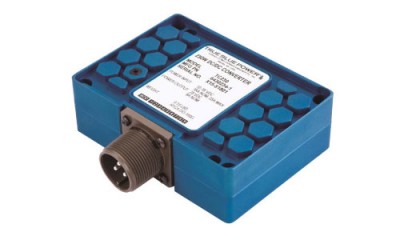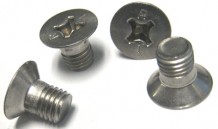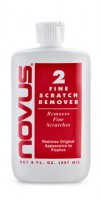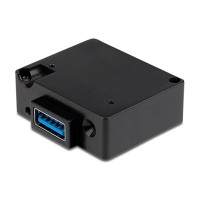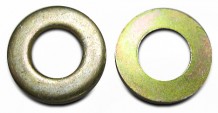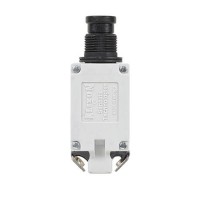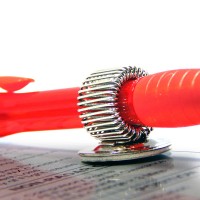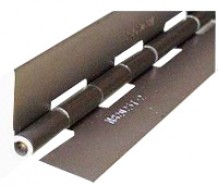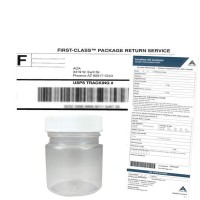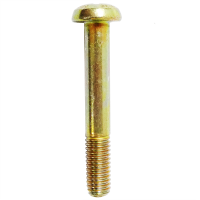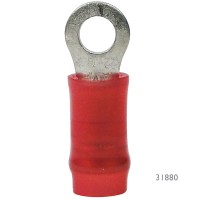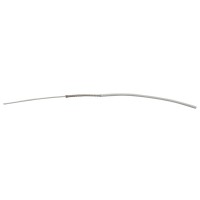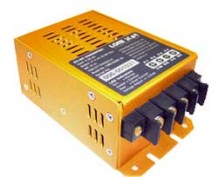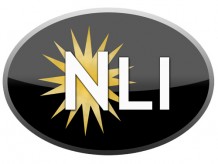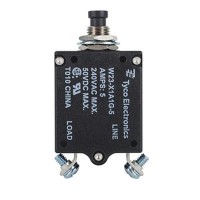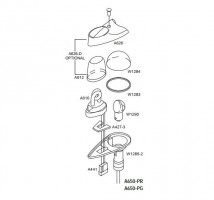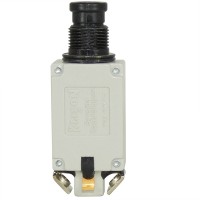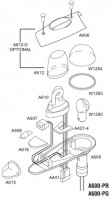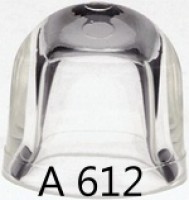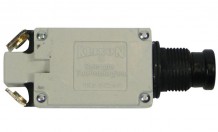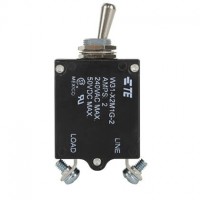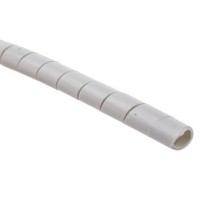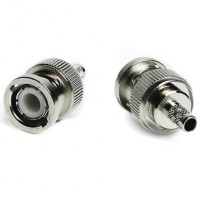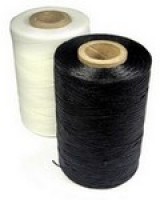1-877-795-2278 | info@aircraftspruce.ca
Aircraft Spruce Canada
Brantford, ON Canada
Corona, CA | Peachtree City, GA
Chicago, IL | Wasilla, AK
Aircraft Spruce Canada
Brantford, ON Canada
Corona, CA | Peachtree City, GA
Chicago, IL | Wasilla, AK
SAME DAY SHIPPING ON ORDERS PLACED BY 2 PM | 877-795-2278
Overview
|
The model TC230 DC/DC Power Converter is a lightweight power converter that translates a direct current (DC) input of 14 volts to an output of 28 volts direct current (DC) output. Converting an input operation voltage range of 10-18 V DC to 28VDC makes the TC230 suitable for power to a wide variety of general, business, or commercial aviation applications. The unit is rated for a nominal output of 230 watts to power avionics, instrumentation, lighting, and many other applications. The TC230 DC/DC Converter is FAA certified to TSO-C71 and tested to rigorous environmental standards and levels of RTCA DO-160G. The small size and light weight in conjunction with its installation flexibility (inside or outside the pressure vessel) make it an ideal choice for aircraft power needs while reducing the challenges associated with other similar products. Highlighted features include short circuit protection, overload capability, low input voltage shut-down, temperature monitoring, reverse polarity protection, a self-resettable over-temperature disable and an optional remote enable (on/off) feature. The TC230 DC/DC converter has a robust Military-rated circular connector and a rugged aluminum case which dissipates heat and provides excellent mechanical strength. It is engineered to require no external cooling and contains no internal fans or cooling methods, which saves energy, reduces weight and allows more flexible installation locations. At only 0.70 pounds, it is lighter and smaller than any other certified solution in the aviation market today. |
Features
- Supplies 230 watts of 28-volt power to electronic equipment, including lighting and cabin accessories
- Lightweight — 0.70 lbs
- 230 watts output power
- 90% efficiency
- Input Voltage: 10 – 18 VDC
- Input Current: 18.0 A Nominal
- Output Voltage: 28 VDC
- Input transient, overload and short circuit protection, temperature monitoring, reverse polarity
- Rated from -67°F to +158°F (-55°C to +70°C)
- Mating Connector: P/N 9018654
- FAA TSO C71 certified and RTCA DO-160G qualified
- Designed and built in Wichita, Kansas, USA
- Two-year limited warranty
Specifications
- Input Voltage: 10 – 18 VDC
- Input Current: 18.0 A Nominal
- Output Voltage: 28 VDC
- Output Power: 230 watts
- Efficiency: 90%
- Weight: 0.70 lbs (0.32 kg)
- Altitude: 55,000 ft
- Temperature: -67°F to +158°F (-55°C to +70°C)
- Protection: Input transient, overload and short circuit protection, temperature monitoring, reverse polarity
- Mating Connector: P/N 9018654
- Case: Anodized aluminum, blue
- Certification:FAA TSO C71 certified / RTCA DO-160G qualified
Q&A
Please note, Aircraft Spruce Canada's personnel are not certified aircraft mechanics and can only provide general support and ideas, which should not be relied upon or implemented in lieu of consulting an A&P or other qualified technician. Aircraft Spruce Canada assumes no responsibility or liability for any issue or problem which may arise from any repair, modification or other work done from this knowledge base. Any product eligibility information provided here is based on general application guides and we recommend always referring to your specific aircraft parts manual, the parts manufacturer or consulting with a qualified mechanic.

 Aircraft Spruce Canada
Aircraft Spruce Canada
